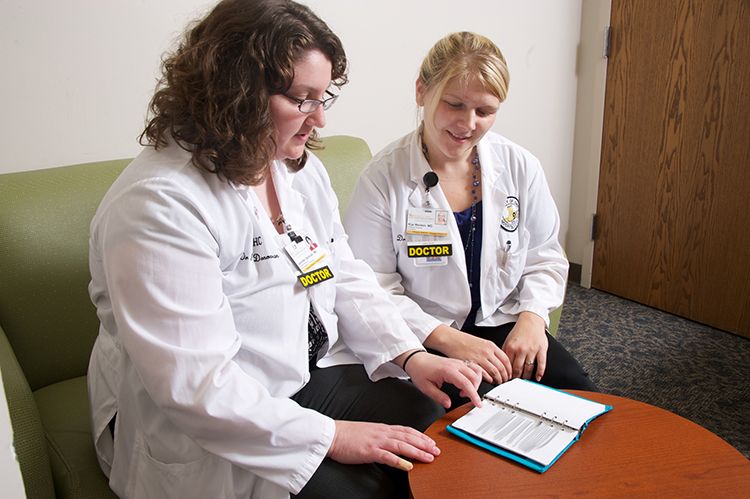Junior Call

As a PGY-1 and PGY-2, the junior residents take in-house call. For the first four call shifts, the PGY-1 residents are on-call with an in-house senior resident taking “training call.” A PGY-2 is also in-house to assist during training.
After the completion of training call, two junior residents are in-house from 5 p.m. to 10 p.m. on Monday through Friday (“short call”) and from 8 a.m. to 8 p.m. on Saturday and Sunday (“long call” or “day call”). Additionally, a junior resident takes call from Saturday at 8 p.m. to Sunday at 8 a.m.
The other six nights of the week are covered by a dedicated PGY-2 night float resident. Call coverage is limited to the University of Iowa, and junior residents take an average of four call shifts per four week block.
Night Float
A PGY-2 will spend one four-week block on night float. The night float resident works 8 p.m. to 8 a.m. on Sunday night and 9 p.m. to 8 a.m. Monday through Friday night.
Senior Call
The PGY-3 and PGY-4 residents take home call, serving as a back-up to the junior residents. During senior call, the senior resident is available by telephone or pager if juniors need support during their call shift. Most often, this involves staffing consults or patients to be discharged from the emergency room. The senior resident will listen to the case, ask pertinent questions, and help develop an appropriate management plan. On rare occasions, the senior resident is called into the hospital; examples include high patient census, junior resident illness, or a very complicated case. On average, senior call occurs twice per block.